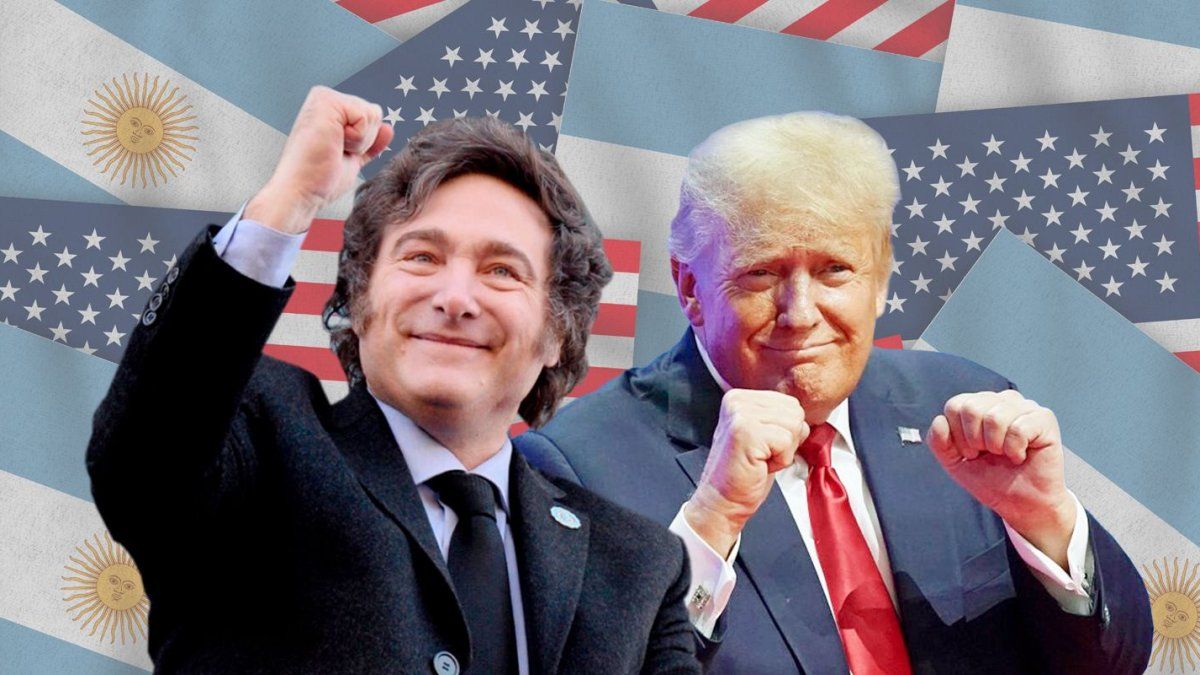With US $ 10,000 million in immediate maturities, net reserves to the limit and a country risk in maximum, the government faces increasing distrust of the market. The intervention of the BCRA and the signals of Luis Caputo do not reach to stop volatility, while Milei bets on a new agreement with the IMF
The economy navigates in turbulent waters: There are US $ 10,000 million in debt maturities in the next four months, while the account that the IMF stir in hand is above US $ 60,000 million. The uncertainty of investors, fueled by the political and economic fragility of the government, has generated a growing volatility that presses to the exchange market and, unexpectedly, reproduces every day. The intervention of the Central Bank of the Argentine Republic (BCRA), which began selling dollars to contain a change rate (which exceeded the band’s roof), and the defeat in Congress with the annulment of presidential vetoes, have intensified this dynamic.
The content you want to access is exclusive to subscribers.
In the last hours, the Minister of Economy, Luis Caputo, He admitted that the Treasury will not buy more reservations at the current price and that the government works in “alternatives” to guarantee the future payment of the debt, without accumulating sufficient dollars to cover the maturities. This confession, in a context of the country’s risk above 1,200 points and continuous fall of the dollar bonds, reflects the urgency of creative “outputs” that can give air to the government. In that sense, the changes implemented by the Trump Administration in the IMF – as the appointment of Dan Katz, a trusted man of the Secretary of Treasury Scott Besent, as the first managing deputy director – could be part of a virtual solution to stabilize the economy.


The distrust of investors has climbed the volatility in the markets, with a direct impact on the exchange rate. The dollar exceeded the ceiling of the exchange band, forcing the BCRA to “burn” reservations to stop the rise, in a context where the central bank’s nets barely exceed US $ 5,000 million. This pressure reflects doubts about the government’s ability to accumulate dollars to imminent maturities and political fragility: the cancellation of vetoes to the financing of the Garrahan and Universities Hospital, with a two -thirds majority in Congress, exposes the weakness of the Executive 38 days after the elections. The country risk, which today reached a maximum in almost a year, and the sustained fall of the dollar bonds, illustrate how this uncertainty translates into capital exits and greater demand for foreign exchange, aggravating the exchange crisis.
In recent statements, Luis Caputo confirmed that the Treasury will not acquire more dollars at the current value, prioritizing the absorption of weights on the band’s ceiling to reduce the money supply. This strategy, which leaves the BCRA without margin to accumulate reservations, evidences the impossibility of covering the U $ 10,000 million in maturities with own resources. “We work in alternatives to pay the debt in dollars “the minister anticipated, implicitly recognizing the risk of default if external flows are not materialized. With scarce reserves and an economy under tension, the government seeks “exits” that guarantee future payment: from renegotiations with bondholders to geopolitical alliances. In this panorama, the volatility generated by the investing uncertainty not only erodes confidence, but accelerates the need for rapid solutions to avoid a exchange rate collapse.
Donald Trump settings in the IMF could emerge as a key piece in this equation. The confirmed appointment of Dan Katz, former head of Cabinet of Scott Besent and ally of the Trump administration, as the first deputy director of the Fund -reporting directly to Kristalina Georgieva -, positions a man of trust in the heart of the organism, where the US is the main shareholder.
Besent, who has been very critical of the IMF for its rigidity and adjustment policies, has declared to be willing to “do everything necessary” to help Argentina, a commitment that aligns with the libertarian ideology of Javier Milei. PAlarally, the designation of Nigel Chalk as director of the Department of the Western Hemisphere, with his experience in previous agreements with Argentina, could provide technical stability. These changes could facilitate a new agreement with the IMF -the most probable route for rapid disbursement, even for a change in future payment dates or virtual refinancing -softening conditions such as fiscal goals or surfaces, and offering a “exit” for maturities without burning more reservations.
In the next few days, during the gala of the Atlantic Council in New Yorkwhere Milei will receive the Global Citizen Award from Besent with Georgieva Present, a possible photo among the three leaders could symbolize this support. The meeting, within the framework of the UN General Assembly, would not only validate Milei’s reforms, but would reinforce Trump’s influence on the IMF as a tool to stabilize Argentina, mitigating investment volatility.
The speculation about a direct help from the US Treasury gains strength with the statements of Besent, who suggested using the exchange Stabilization Fund before an “external shock.” It could be thought that Besent al IMF’s criticisms make this option less unlikely, especially given the proximity between Milei and Trump. SHowever, a bilateral loan would imply major geopolitical concessions.
Source: Ambito




